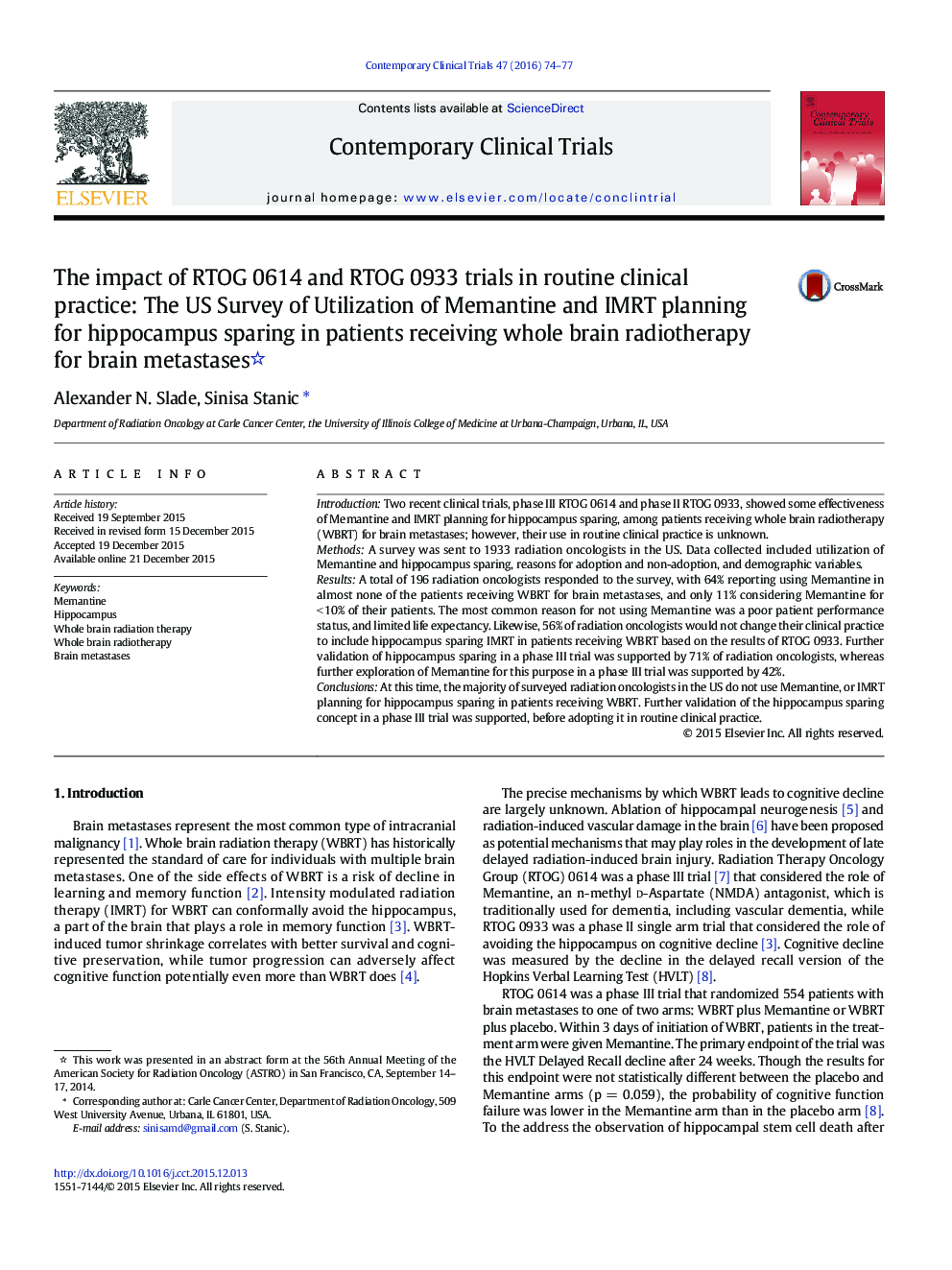| Article ID | Journal | Published Year | Pages | File Type |
|---|---|---|---|---|
| 6150675 | Contemporary Clinical Trials | 2016 | 4 Pages |
IntroductionTwo recent clinical trials, phase III RTOG 0614 and phase II RTOG 0933, showed some effectiveness of Memantine and IMRT planning for hippocampus sparing, among patients receiving whole brain radiotherapy (WBRT) for brain metastases; however, their use in routine clinical practice is unknown.MethodsA survey was sent to 1933 radiation oncologists in the US. Data collected included utilization of Memantine and hippocampus sparing, reasons for adoption and non-adoption, and demographic variables.ResultsA total of 196 radiation oncologists responded to the survey, with 64% reporting using Memantine in almost none of the patients receiving WBRT for brain metastases, and only 11% considering Memantine for <Â 10% of their patients. The most common reason for not using Memantine was a poor patient performance status, and limited life expectancy. Likewise, 56% of radiation oncologists would not change their clinical practice to include hippocampus sparing IMRT in patients receiving WBRT based on the results of RTOG 0933. Further validation of hippocampus sparing in a phase III trial was supported by 71% of radiation oncologists, whereas further exploration of Memantine for this purpose in a phase III trial was supported by 42%.ConclusionsAt this time, the majority of surveyed radiation oncologists in the US do not use Memantine, or IMRT planning for hippocampus sparing in patients receiving WBRT. Further validation of the hippocampus sparing concept in a phase III trial was supported, before adopting it in routine clinical practice.
